
J. Robert Lennon's first book,
The Light of Falling Stars, got a glowing review from the
New Yorker: "Lennon's impressive first novel — psychologically nuanced, richly detailed, unexpectedly comic — offers us an unsentimental examination of the ways in which we find and lose those we love, both before and after death." His novels and short stories have been exploring those same themes of mortality, relationships, and identity in the 15 years since.
Familiar, Lennon's newest novel, is his most impressive work yet.
Elisa (Lisa) Brown is driving back from visiting her son Silas's grave when a crack in her windshield disappears and her world shifts completely. She's suddenly in a parallel world, where the last several years of her life have gone very differently and both her sons, Silas and Sam, are still alive. Library Journal raved in a starred review, "Stunning, convoluted, and compelling, this thoroughly mesmerizing work is recommended for discerning readers who savor an unusual story brilliantly presented." We agree, which is why we're thrilled to have chosen Familiar as Volume 36 of our Indiespensable subscription club.
÷ ÷ ÷
Jill Owens: How did Familiar begin? I heard from our rep that it involved a car trip you had to make because of the September 11 attacks.
J. Robert Lennon: The short version is that I was going on a book tour for my third novel, On the Night Plain. On September 11, I got up and flew out of Syracuse to Chicago, and I was going to get another flight to Iowa City to do the first reading at Prairie Lights. I landed in Chicago and everything seemed normal. It was about 8:30/quarter to nine in the morning.
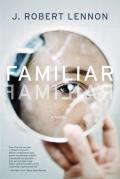 I went and got something to eat, and I came back to my gate and watched as the board just ticked off "delayed," "delayed," "delayed," "delayed" and then "canceled," "canceled," "canceled," "canceled." When I went up to the United counter to see what was going on, the clerks there were in tears. I thought, Oh, God. This is something really strange.
I went and got something to eat, and I came back to my gate and watched as the board just ticked off "delayed," "delayed," "delayed," "delayed" and then "canceled," "canceled," "canceled," "canceled." When I went up to the United counter to see what was going on, the clerks there were in tears. I thought, Oh, God. This is something really strange.
I immediately went and rented a car. I ended up driving to Iowa City because I had a hotel room there. I actually gave a reading that day at Prairie Lights to three weeping people.
Jill: That was 11 years ago today, actually.
Lennon: Yes, 11 years ago today. Of course, by this time the book was just sinking like a stone because no one thought about anything related to literature for months on end. Even I didn't care about it. I think all of us just dropped everything.
Since I had a rental car, I drove back home to Ithaca, New York, where I live, and it took about three or four days. It was really strange to drive on these roads where you knew that everyone in the cars around you was listening to the radio. They were listening to the same endless coverage of this event and its implications. There was a sense of wanting to get home to be closer to New York somehow. I've never lived in the city, but I wanted to be in the state of New York and actually be a part of what was happening.
I felt disconnected in this weird way. Of course, there were no planes in the sky, and the sky was cloudless. It felt surreal. It felt like an alternate universe had opened up and I was driving through that instead of the one that I had just been in a few days before.
A year or two later I tried to write a draft of Familiar, or what would eventually become Familiar. This would have been 2002. I got about 30 or 40 pages in. I knew it was going to be about a woman who enters a parallel universe in which things in her life were different, but I had no other clue what it was going to be.
It fizzled out, and I wrote something else instead. But the idea stuck with me, and it wasn't until much, much later that the intervening 10 years of being a parent had given me something for the book to be about. I restarted it. I printed out and deleted the old file, read it, and then started writing it again from minute one. This time I was actually able to go all the way through.
Jill: When I went back and read Pieces for the Left Hand, it almost seems like a couple of those little pieces might have thematically been germs or been connected to it as well. I think I was thinking of the stories "Intruder" and maybe "Switch."
Lennon: It's weird that you mention this, because I was eating lunch with a friend of mine who had read that book, and he brought up the story in there, which I had forgotten about, where the couple is expecting this young couple to come and have dinner with them. They show up and they're penniless waifs. It turns out that they're imposters, and when the real people come, they don't like the real people as much. I think there's another one too where these two people who look identical to each other end up getting married.
Jill: Oh, the twins.
Lennon: Yes. I think the various iterations of the doppelganger have always been compelling to me. At first I hadn't really thought of this as a doppelganger book. I thought of it as a quasi-sci-fi novel, but it's definitely about the alienness of the self.
Jill: I feel like the concept or the feeling of the uncanny comes up in a lot of your work. But Familiar — even down to the title — seems to completely exemplify that state, where something is familiar and not familiar at the same time. I was wondering if that was something you were consciously working with.
Lennon: It didn't used to be, but around the time I started writing Castle, I began to start mining that vein in my work more self-consciously. I can't explain why I did that at that time. I decided that I was going to write some shorter, more peculiar novels. I think I'm done for the time being. My next book, at least in conception now, is a sprawling social comedy.
But we'll see. Maybe I'll give it up and do something weird again.
Jill: Longer and less peculiar.
Lennon: Yes, exactly. [Laughter]
Jill: I was almost surprised that Familiar is as short as it is. You pack a lot into 200 pages. It feels longer than that.
Lennon: Is that how many printed pages it is?
Jill: In the advance reader's edition, it's 205.
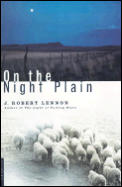 Lennon: Wow. I knew it was short, and I think it is my shortest novel. I was frustrated with a certain aspect of my writing, and I got into a state of mind where I started to see all of my past writing as just boring descriptions of people's feelings. [Laughter]
Lennon: Wow. I knew it was short, and I think it is my shortest novel. I was frustrated with a certain aspect of my writing, and I got into a state of mind where I started to see all of my past writing as just boring descriptions of people's feelings. [Laughter]
I know that's a vast generalization, and of course that can be a good kind of writing, but I was determined not to put any reflection in the first draft of this book. It was going to be very spare, and everything would be left unsaid. I did a draft like that and gave it to my wife to read; she's the novelist Rhian Ellis, and she's my first-pass editor. Of course she said, "Dude, this is way too short, and you don't know what anyone's feeling." [Laughter]
I had to build it back up from nothing. But I think, as an exercise, it was really useful to me. It's a very lean novel because there was no fat to trim. I actually had to bulk it up, and that's the first time that's ever happened.
Jill: That's interesting to me, that process that you describe. By no means would I say it's an overly emotional novel, but I think part of the great pleasure of it is that you're so close to Lisa's thoughts, and she is reflective. She's trying to figure out what is going on. She's trying to puzzle out how to fit into this new life, and what kind of a person she is, and what her job is.
Lennon: I wanted to write about someone very different from myself. Not that my other characters are terribly similar to myself, but I am an excessively emotional person, to a fault. Not only do I allow myself to feel every emotion but I overindulge in it. I wanted to write about somebody who is somewhat detached from emotion, especially if I was going to write about something as impossible to process as the death of a child, something I'm lucky not to have experienced. I wouldn't want to read a book in which someone is devastatingly sad, page after page.
But I did want her to be having to process it in some way, and because she starts off the book as a scientist, she has a scientific way of looking at things. Of course, part of what the book is about is the futility of analyzing certain things that are not really capable of analysis, that will not submit themselves to analysis.
Jill: The way she deals with her grief in her first life is by having these elaborate fantasies while she's embroidering, as a way of accessing those emotions.
Lennon: Yes. Occasionally I'll get deeply involved in a tedious or banal task and will suddenly find myself overwhelmed by emotions that have, until then, been convenient for me not to experience. The idea that doing a small and meaningless thing with your hands can give way to these emotions that you don't really want to feel… for me, it's usually stacking firewood. That's where that comes from.
Jill: It seems it would be fun to write the clues that she uses to try to figure out who she is. In her office, she's trying to figure out her job, and even in her house, the carpet's different, her clothes are different, and she doesn't know whether or not she wears makeup. How did you think about that process, setting that up for her to unscramble?
Lennon: I read a lot of crime fiction, and I love a really good police procedural. I often think about the addictive quality of a good mystery, the way it presents a puzzle to you and promises a solution, an answer. I always wondered if you could make a good mystery in which there is no murder, in which the crime, so to speak, is utterly without heft. That is, is the experience of the puzzle itself enough to keep you interested, or does it actually have to have something behind it?
I like this idea that she's essentially solving the mystery of who she is, in the most prosaic possible ways — things like trying to figure out what her email password is or trying to figure out where, in this complex of offices, her office is, without revealing that she's not herself or convincing people that she's lost her mind. She's solving the puzzle of her own alternate life.
Nothing that happens in these pages is at all interesting. [Laughter] She just goes to work, and she tries to figure out what her work is. But it was really fun for me to do, and I hope it's compelling enough to read. It's simply because of the context. These, again, banal, prosaic things take on all this emotional weight.
Jill: The premise of the parallel lives and then the puzzle are really compelling. This was a very page-turning book. And then the other thing that propels it is when you start to realize how complex her relationship in both lives was, and is, with her sons. You've described this as "a horror novel about parenting." [Laughter]
Lennon: Yes.
Jill: Why did you want to write a horror novel about parenting?
Lennon: You always want your children to be happy and for them to have good lives. On some level, maybe you don't want to examine that too much. If they have lousy lives, you don't want it to be your fault. If they have good lives, you do want it to be because of your excellent parenting. [Laughter]
But the fact is, you can try really hard, but you can also try too hard. You can choose to neglect benignly and end up neglecting dangerously. Ultimately, the ways in which your children are successful human beings and the ways in which they are not are perhaps under your control, in part, but you're never going to know which of the things you did or didn't do had an effect. The things that you think are going to have an effect are often just random distractions, and the things that you do unthinkingly and don't think your kids are even noticing are probably what they are going to remember. This is horrifying because our culture puts a lot of weight on parenting as an activity — not merely a state of being but a thing you're supposed to do.
Not only are you supposed to do it, you have to do it right. If you screw up, you are to blame for what happens to your children. Aside from the obvious ways to screw up, like being cruel to them or being absent, everything else is just hairsplitting and speculation. There's something terrifying about that.
If there's one thing in the world you want to control when you have kids, it's that they will have decent lives, and you just can't. I wanted to dramatize that in a way that was as much intellectual puzzle as it was domestic drama.
Jill: Lisa's relationship with her son Sam in her new life versus her old life is really sad.
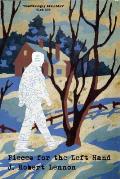 Lennon: I wanted to write a book in which someone realizes they're a bad mother. It doesn't mean that they're a bad person. The way she conceived of her relationship to her children was based on this... I'm not going to use the word "narcissism" because that seems judgmental. She has conceived of her relationship to her children in a way that serves her psychological need not to have harmed them. This alternate universe is showing her the folly of that. I think it's a folly that all of us indulge in. There's a level in which all of us are not adequate parents because the job of parenting is inherently unmasterable.
Lennon: I wanted to write a book in which someone realizes they're a bad mother. It doesn't mean that they're a bad person. The way she conceived of her relationship to her children was based on this... I'm not going to use the word "narcissism" because that seems judgmental. She has conceived of her relationship to her children in a way that serves her psychological need not to have harmed them. This alternate universe is showing her the folly of that. I think it's a folly that all of us indulge in. There's a level in which all of us are not adequate parents because the job of parenting is inherently unmasterable.
Jill: Speaking of narcissism, one of the quotes that really caught me from the book was: "The older you get, the more life seems like a tightening spiral of nostalgia and narcissism, and the actual palpable world seems insignificant, replaced by a copy of a copy of a copy of a copy." Which felt terrifyingly true to me. [Laughter]
Lennon: If you are any kind of thoughtful or empathetic person, or a person with standards on how you live your life, it's very hard to stay focused forward when your past is gradually stacking up behind you. The shadow of your past falls ever darker over your present. For a lot of people, you just don't want to think about it. You want to put it out of your mind, or you convince yourself that things that did happen didn't happen, or things that you wish happened did happen. That's part of what she's struggling with. It's hard to walk through life with a light step.
People talk about this a lot in terms of mortality: "When you're in your 20s, you think you're going to live forever!" I remember being in my 20s very distinctly. It wasn't that long ago. I worried about my mortality all the time! [Laughter]
That's always been a burden to me, but it's a greater burden now that I'm thinking about the cumulative effect my life has on the people around me. I didn't think much about that when I was in my 20s. That's what Lisa is having to confront simply because she had a tragedy in her past for which she has to face the possibility that she is partly responsible.
Jill: In Silas's interview about the video games he creates, he says, "Stories exist to make sense of life. But they're a pointless exercise. Life is inherently nonsensical. Drawing strands of meaning together is for idiots." I was curious how this compared with how you thought about story and meaning?
Lennon: I basically agree with him, except I think it's awesome, not foolish. We're addicted to story; it's almost as much a biological drive as the sex drive. It's something that sustains us and creates life. Our sense of our own lives is a series of stories. We try to make narrative sense of our own lives. The impossibility of making a tight narrative out of your own life is vexing, and so when someone can artfully create a sensible narrative, one that feels like life except actually makes sense, we are excited by it.
This is the meta-discussion in the book about story. What I wanted to do with the story Familiar is actually have there not be an explanation for what's going on, but have the search for that explanation to be story enough in and of itself. Which I know has the potential to be singularly unsatisfying. I always tell my students to try to bait and switch with the end of the story. The thing I always tell them is you don't want to give the reader what he wants. You want to give him what he doesn't yet realize that he wants.
Essentially, I concur with Silas, but Silas is a cynic. He finds this foolish. Deep down, he is engaged in a form of narrative as well, but it's a form of narrative that gives you the illusion of an infinite world that you can actually control — when in fact, it is a limited world in which you're compelled to do certain things by an unseen hand.
Jill: You were saying that initially you saw this a little bit more as a sci-fi novel. Did you have to do much research in terms of the physics of parallel worlds or the video-game part of it?
Lennon: I did a little research for all those things, yeah. I talked to some scientists, especially a former student of mine who was a woman physicist. I talked to her a bit about what it is to be a female scientist. Some of that material made it into the book. I talked to another guy I know, who is a mathematician but has a scientific mind, about the philosophical implications of the multiverse. Brian Greene believes that not only is the multiverse possible but it exists, and all the possible universes exist, not just in a woo-woo, imaginary way. They're actually out there, existing. I find that totally delightful.
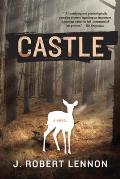 This idea gets stuck in Lisa's head. It feels on one hand like an escape hatch from the confines of the two lives she's trapped in, and on the other hand, it's almost brutally intimidating to her. And I had played video games when I was growing up, but I haven't played many of the kind of games that I am describing in there.
This idea gets stuck in Lisa's head. It feels on one hand like an escape hatch from the confines of the two lives she's trapped in, and on the other hand, it's almost brutally intimidating to her. And I had played video games when I was growing up, but I haven't played many of the kind of games that I am describing in there.
I actually sent that whole passage to Tom Bissell, who is a major gamer and has written extensively about video games. He sent it back with all kinds of pedantic corrections. Although, I think if he reads the final draft, he'll still be irritated with me because I used a little bit of poetic license.
As a nerd in other areas, like photography and rock and roll and things like that, I know when people get those things wrong in a book, nerds get really pissed. That's happened to me many times. I wanted to get it at least partly right.
Jill: I liked the epigraph for Familiar, which also partially shows up in Silas's signature line on Internet forums: "A few days later he reported a dream: he saw himself in a strange city with his friend, except that the face of his friend was different." It's from Wilhelm Reich's Character Analysis.
Lennon: I have to confess that I have not read that book. A friend recommended it to me, and I read about 50 pages of it. That line stuck with me. I believe I read that before I even conceived of Familiar. I've had that quote written on a piece of paper and thumbtacked to the wall of my office for years. When I got the idea for this novel, I thought, Ah! That's where I'm going to use that quote.
I like this idea that in dreams, things are both familiar and unfamiliar. A lot of the books that I've enjoyed over the past 10 years have been books that take on the logic of dreams, like The Unconsoled by Kazuo Ishiguro. It's one of my all-time-favorite novels. Of course, there's Kafka, and Tom McCarthy's Remainder, which was a pretty big influence on this book. These are stories in which things are eerily like real life but are stridently artificial and about the nature of artificiality itself, its cognitive effects. I've also been reading about... Is it Capgras Syndrome?
Jill: Yes, Capgras Syndrome. I was actually going to ask you about that. Richard Powers writes about it in The Echo Maker.
Lennon: Yes! Oliver Sacks wrote about it years ago. I had that in my head. And of course I did read The Echo Maker and really liked it. This idea that there is this condition where you see someone you know very well but believe they're an impostor... I love that idea because it feels like an unwanted enhancement of something that's already present in our psychology, this idea for even the most familiar thing to suddenly seem alien.
It's like when you're reading a book and you come across an ordinary word. You say it in your head a few times, and then suddenly it sounds like the craziest thing you ever heard. You look in the face of your husband or wife, and they suddenly, for an instant, seem bizarre to you — like, Who is this? [Laughter]
I think this is something that happens to us a lot and is, blissfully, quite temporary. In this case, it's become what the character's life is. In the case of Capgras Syndrome, it's chronic.
Jill: We were talking about the uncanny a while back, and this discussion also reminds me of the whole uncanny valley effect with robots, or with other simulacra, becoming more and more lifelike until suddenly you're very uncomfortable.
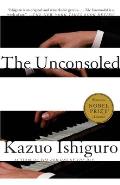 Lennon: Also, video games are incredibly lifelike. They're in the uncanny valley for me; it's disturbing how close they are to looking like actors on a movie screen. I think gaming is getting weirder and weirder as a result — in a very positive way, it seems to me. I think the opportunity for art here is very great. Though I guess there aren't a whole lot of video games that go whole hog in the artistic direction.
Lennon: Also, video games are incredibly lifelike. They're in the uncanny valley for me; it's disturbing how close they are to looking like actors on a movie screen. I think gaming is getting weirder and weirder as a result — in a very positive way, it seems to me. I think the opportunity for art here is very great. Though I guess there aren't a whole lot of video games that go whole hog in the artistic direction.
But yes, I think all these phenomena are connected.
Jill: What are you reading right now that you really like?
Lennon: I'm reading Bleak House, which to my embarrassment, I have never read before.
I adore it. It's interesting too, because Dickens is writing in serial, and in the beginning of the book, everything is very sentimental. The protagonist is rather Pollyanna-ish, and everything is painted in broad strokes. As he develops throughout, it's like watching him deepen. I find it really exciting to read.
I'm glad that he didn't go back afterward and fix everything because you can actually feel what it might have been like for him to write it. Bleak House is kind of inspiring the possible social comedy I might write.
Jill: Speaking of serials, I had forgotten that you wrote Happyland. I read that as it came out in Harper's years ago and loved it.
Lennon: Thank you! The serialness of Happyland was artificial because I had written the whole thing as a normal novel, and it got dumped by W. W. Norton for what seemed to me to be paranoid legal reasons. Then Harper's, agreeing with me, picked it up and published it without incident. But they published it as a serial. I actually cut about 30,000 words from that, and the complete edition is coming out soon as an ebook from Dzanc Books. I'm hoping to be able to publicize that more when I know what the dates are. Thank you for remembering that. A friend and I just wrote a TV pilot based on it, so we'll see what happens with that. [Laughter]
Jill: That would be really interesting.
Lennon: It would be fun, I think.
I spoke to J. Robert Lennon by phone on September 11, 2012.